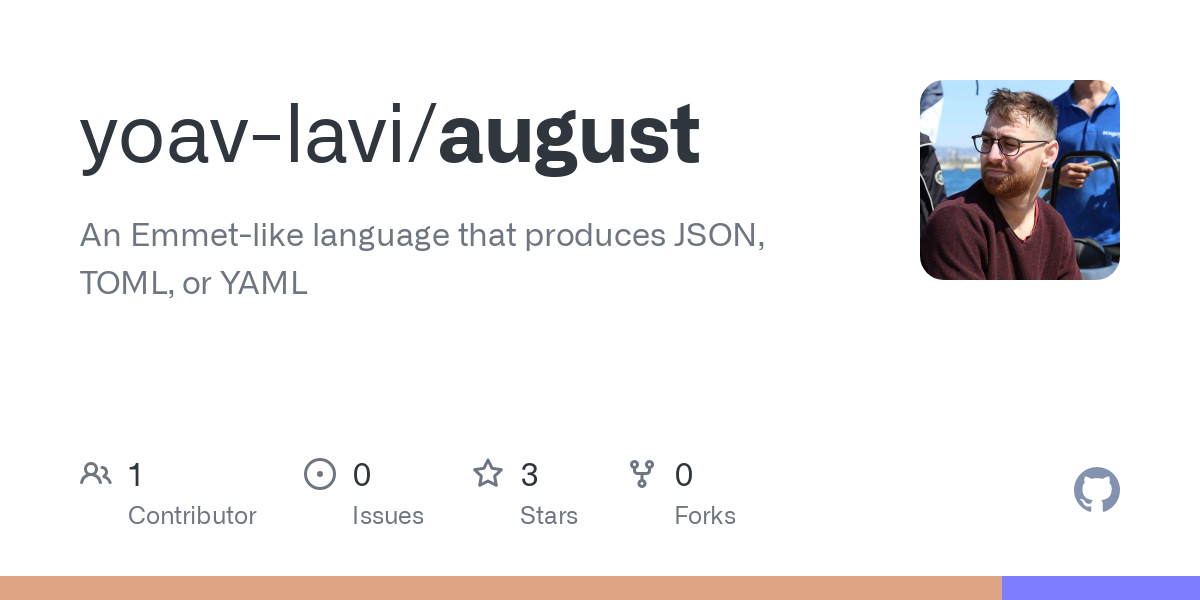Announcing [language]! A [language]-like language that produces [this language], [that language], or [another language]! Written in [language]!
/s
Why does it being written in Rust? Do people think, wow I must use this because it’s written in Rust?
speed, probably
Speed and memory safety generally
deleted by creator
zsh has completion built in. There’s zsh-autocomplete that’s maybe closer to what you’re thinking. I’m not aware of a term emu with special GUI for it beyond what your shell gives you.
I wanted to try using yamlpath (
yaml-setin particular) to recreate the first example, even though the usage model doesn’t quite match up. It’s a bit tedious because I don’t think you can do unrelated replacements in a single command:$ <<<'{}' yaml-set -g ignored.hello -a world | yaml-set -g tabwidth -a 2 -F dquote | yaml-set -g trailingComma -a all | yaml-set -g singleQuote -a true -F dquote | yaml-set -g semi -a true -F dquote | yaml-set -g printwidth -a 120 -F dquote | yaml-get -p .Trying to make it neater with Zsh and (forbidden) use of
eval:$ reps=(ignored.hello world tabwidth 2 trailingComma all singleQuote true semi true printwidth 120) cmd=() $ for k v ( ${(kv)reps} ) cmd+=(yaml-set -g $k -a $v -F dquote \|) $ <<<'{}' eval $cmd yaml-get -p .EDIT: Ugh I can’t figure out how to properly write the less than sign in lemmy comments.
Off-topic, but beacme of Google’s Carbon? People on Reddit created much hype like an year ago.
Interesting concept, just FYI, there’s a popular code grepping tool called Silver Searcher, and it also uses
ag- consider just usingaugustto avoid ambiguity/collisions.







